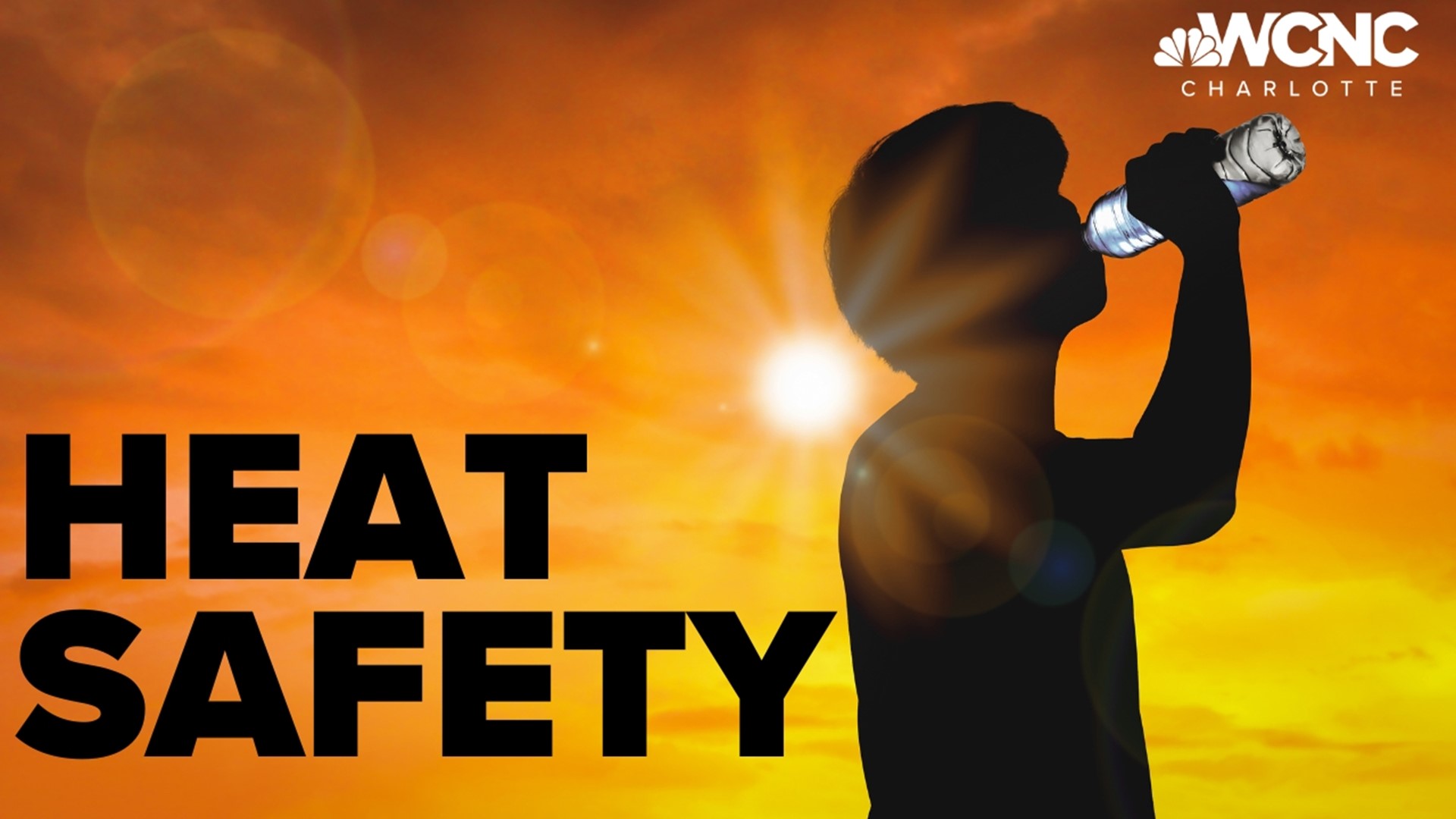CHARLOTTE, N.C. — Roughly 60 million Americans have been under heat alerts, including in the Carolinas, which raises concerns about the possibility of heat-related illnesses.
According to the Centers for Disease Control and Prevention (CDC), extreme heat can lead to heat stroke, heat exhaustion, heat cramps, sun burn and even heat rash.
Dr. James Reed, a primary care specialist with Novant Health, said it's important to be protected in the sun, especially during high temperatures.
"I think people can underestimate how bad heat illnesses can be and how common they are," Reed said.
CDC data shows more than 67,000 people a year are sent to the emergency department due to heat and about 700 die, on average.
Headache, dizziness and nausea are among the symptoms that those affected could face.
READ MORE: Heat waves like the one that's killed 14 in the southern US are becoming more frequent and enduring
“I recommend that everybody stay out of prolonged heat and sun exposure for prolonged periods of time during hot weather," Reed said, "that they wear loose, light fabric and dress appropriately, that they stay hydrated.”
He added that young children and the elderly are some of the most vulnerable to heat-related illness, but, as temperatures rise, it's important for everyone to be mindful of ways to stay safe.
“If you start feeling dizzy, if you start sweating profusely, you need to get out of the sun and get something cool immediately," Reed said. "Have fun in the summer, but obviously use common sense and really recognize any heat-related symptoms and, you know, you'll be fine.
For more tips on how to stay safe in extreme heat, visit the CDC online.
Contact Kayland Hagwood at khagwood@wcnc.com and follow her on Facebook, Twitter and Instagram.

